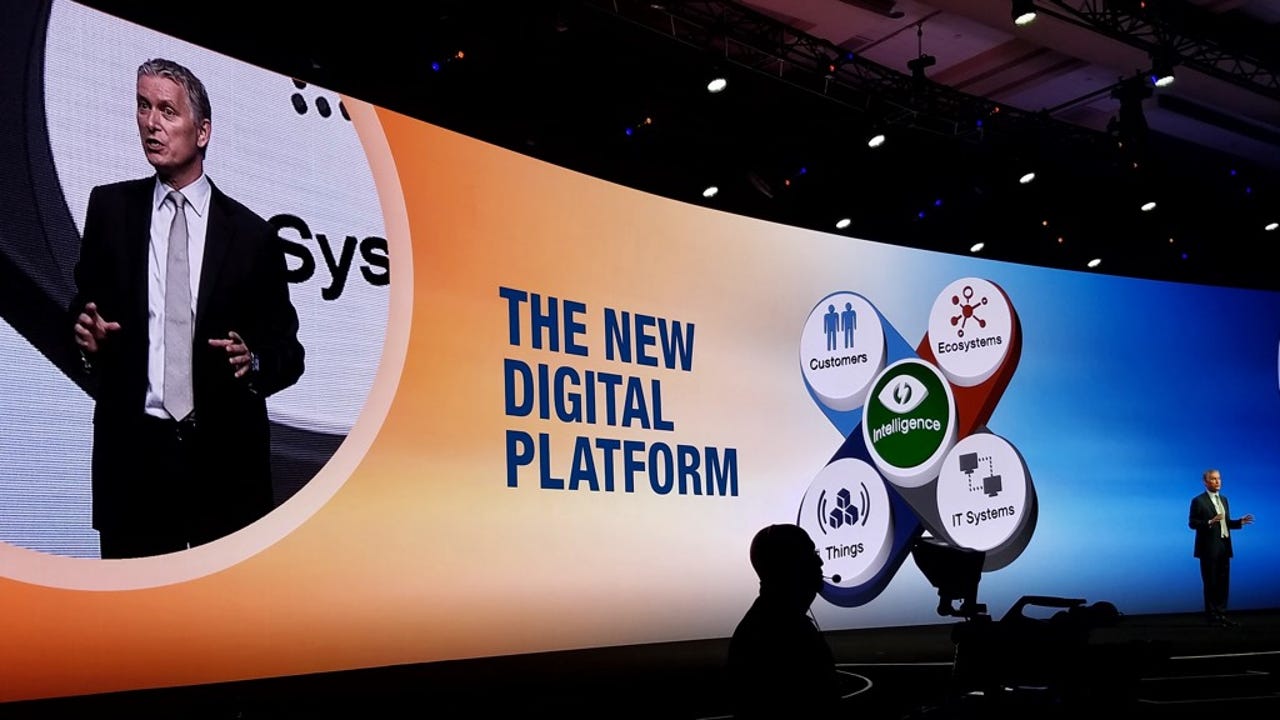IT's new role: Build a digital society worthy of our descendants


Peter Sondergaard challenged tech leaders at Gartner Symposium with a big vision for the digital platform of the future.
Gartner's Peter Sondergaard opened the research giant's 2016 Symposium and ITxpo on Monday by imploring the overflow crowd of tech leaders that it was time to think bigger than just business and IT. The platforms that CIOs and other IT chiefs will lead in the years ahead are going to lay the foundation for a new digital society that we will hand off to coming generations.
While many of today's CIOs are bogged down in doing more with less and struggling to keep up with the relentless pace of the tech industry, "it's time to build again," Sondergaard told them.
"A bright future is hanging in the balance, but the digital world is in a constant state of upgrade," he said. "You can do more than cope, you can do more than manage... You can lead and build a brighter civilization"
He called today's CIOs "builders of a new type of infrastructure."
Sondergaard said Gartner had three recommendations for businesses, governments, and other large organizations:
- Treat IT investment as assets (and not just costs)
- Build the new digital platform (the heart of digital transformation)
- Reorganize for digital (including the annual budget cycle)
"The new digital platform we're talking about today extends beyond traditional IT infrastructure," Sondergaard explained, but added that "high performing IT systems are critical to [its] success."
The biggest bomb Sondergaard dropped in his recommendations for how to do this involved changing the once-a-year IT budget process.
"In this accelerated world, we will discover the limits created by the annual budgeting cycle," he said. In order to keep up, he asserted that organizations will need to transition to a continual budgeting process for tech. He acknowledged that it will be a shock to the system of most companies based on how they're organized today.
SEE: Video: 3 tips for winning the IT budget wars
But, that's what it will take to deliver the "new digital platform" that will be the foundation of not only next-generation companies, but society itself. Sondergaard compared it to other groundbreaking advances such as the power grid, public water, and mass communications with radio and TV.
We could also simply view this as an outgrowth of the growing sophistication of the internet, which is continuing to embed itself deeper into every aspect of work and life--and is about to take a big leap forward with the explosion of the Internet of Things.
Nevertheless, Sondergaard said that this new digital platform that transcends traditional IT will become the responsibility of tech leaders if they change their mindset and step up to actually lead. It will have five building blocks:
- IT systems - "We have to clean up our traditional in-house systems and infrastructure."
- Customers - "The relationship you have with your customer is the relationship your systems have with your customer in the moment."
- Things - "IoT is the new cross-disciplinary area for IT."
- Intelligence - "Artificial intelligence moves at the speed of data, not at the speed of code upgrades."
- Ecosystems - "Ecosystems are the next evolution... It's how you compete at scale."
It's important to note that ecosystem in this context is referring mostly to creating APIs to let your partners and your community interact more deeply. Sondergaard said APIs "are as important to your ecosystem as synapses are to the brain."
He also acknowledged to all the IT leaders in the room that "many of you are under pressure to take out cost." Sondergaard said that high performing organizations are increasing their tech spend, while also constantly removing or lowering whatever costs they can. He emphasized that the two go hand in hand--if you develop a reputation for always removing unneeded costs then you'll win the confidence to get more investment.
But, to get to the next level of building the digital platform of the future, CIOs will have to change their mindsets and lead "not by control, but by influence."
Plenty of CIOs and IT leaders in the audience were probably wondering how they're going to do that when their money and their staff are already stretched too thin. However, the idea of transitioning to more of an architect and a builder than a operator must have been appealing because the room greeted Sondergaard's vision enthusiastically.
"Get it right," he said, "and we, our children, and our children's children will prosper."
More from Gartner Symposium ITxpo 2016
- 5 things CIOs need to lead digital transformation (TechRepublic)
- Former Secretary of Defense: 'I have wasted more money on IT than anyone in history' (ZDNet)
- Cisco CEO Robbins: There are no backdoors in our products (ZDNet)
- Nadella: 'Windows is the most open platform there is' (ZDNet)
- Gartner's digital transformation, IT crystal ball for 2017: Reading between the lines (ZDNet)
- IT in 2017: Prioritize these 10 strategic initiatives, says Gartner(TechRepublic)
- Gartner's 10 big trends that will change how IT operates (TechRepublic)